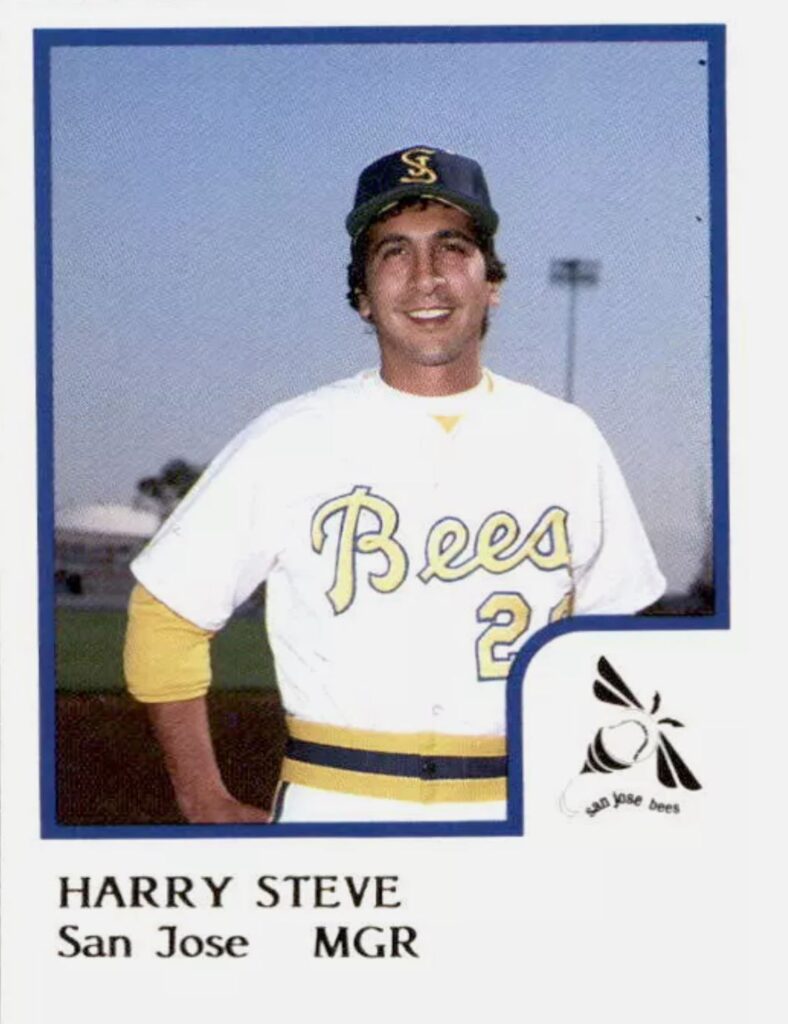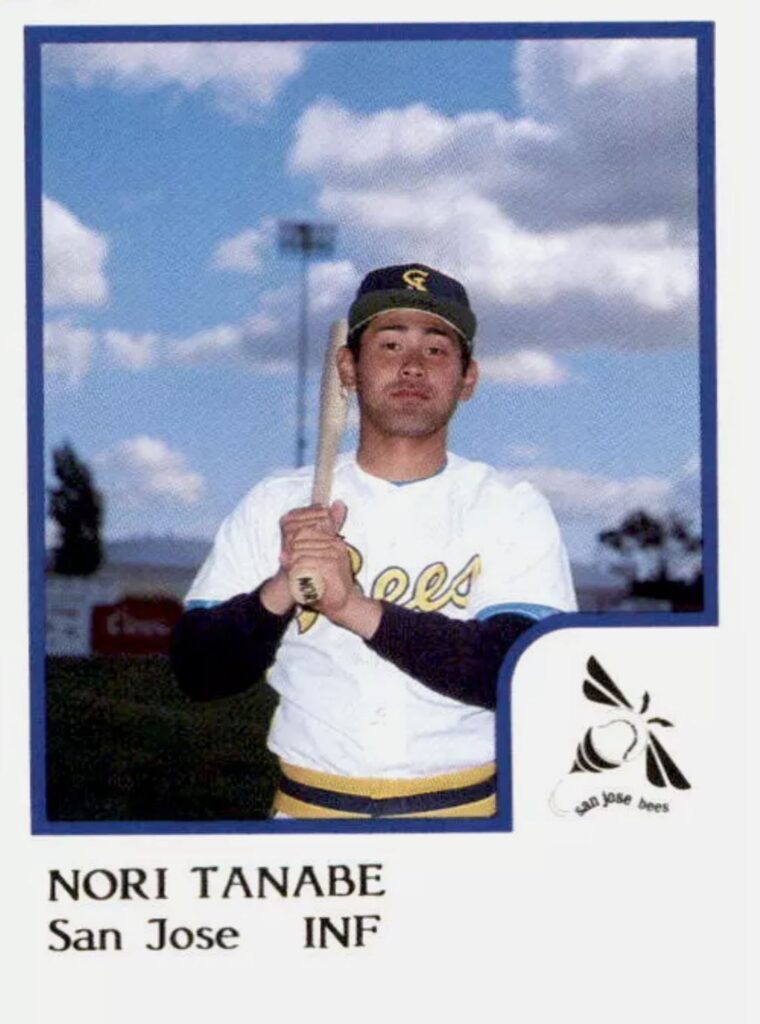The third incarnation of the San Jose Bees played from 1983 through the 1987 season. Their time as the flagship ballclub for San Jose was brief but storied.
Owner “Woody” Kern bought the San Jose Missions club after the 1981 season and signed a deal with the Montreal Expos, but bad attendance in 1982 and shady practices made the Expos retract their deal. The name “Bees,” which had served two previous incarnations of San Jose baseball clubs, was chosen for the 1983 season.
Kern then hired a 31-year-old man named Harry Steve. Another shady deal was worked out to essentially lease the team to Steve, who became the owner for all intents and purposes. One of Steve’s first moves was to partner with the Japanese baseball team Seibu Lions. For $25,000 a year the Lions would pay to develop players with the Bees.
1983 San Jose Bees
The newly branded Bees finished dead last in the league, going 55-84 under manager Frank Verdi. One of the few big leaguers on the team was Jack Daugherty, who spent a few good seasons with the Rangers.
1984 San Jose Bees
The 1984 Bees got slightly worse, finishing 55-85.
1985 San Jose Bees
Again, the Bees found a way to lose more without winning more, going 55-88 on the season with Jethro McIntyre managing.
1986 “Bad News Bees”
In 1986 the Bees decided to pursue a group of players that had found themselves labeled as “un-signable” due to substance abuse issues with cocaine, pills and booze. It is this 1986 edition of the Bees that made them globally famous as the “Bad News Bees.” Players like former pitchers Steve Howe and Mike Norris were given a second chance with the Bees. Both players had recently been at the top of the game for a year or two, but now found themselves unemployable: until the Bees came knocking.
The Bees proxy owner and acting boss of everything Harry Steve, went out and recruited these guys; it was a strategy as an independent team.
Despite having some of the MLB’s recent stars, the ’86 Bees finished last in the West and had the second worst record (65-77) in the California League. In an odd juxtaposition, the Bees had a deal with Japan’s Seibu Lions baseball club and several players were on loan to San Jose, including Norio Tanabe, then just a young man. The Japanese players were under a strict and abusive discipline that the Americans were clearly not. According to Sports Illustrated, the Japanese players were routinely slapped and yelled at for minor transgressions and normal baseball outcomes (strikeouts).
While most of the guys had managed to leave their wild days behind, some didn’t, Steve Howe ended up peeing a positive cocaine test and was suspended. Harry Steve pitched him anyway, despite a call from MLB not to, which earned him an indefinite suspension. Howe tested positive again, anyway, ending his career with the Bees.
Other antics included guys living at the stadium, absenteeism, arrest warrants, an alleged Oakland gangster, a brawl with fans and suspended licenses.


Despite their rowdy and occasionally unlawful antics is was the Bees humanity that reigned supreme in the end, above all their flaws. They kept the Municipal Stadium dugout warm for the next tennant: the Giants.
After the ’86 season many of the Bees moved on. Mike Norris ended up back with the Oakland A’s and got a few more appearances. Steve Howe made it to the Yankees for a few seasons but kept doing drugs and died in solo car accident. Norio Tanabe had a long career in Japan playing for the Lions and Yomiuri Giants and now manages the Lions.
1987 San Jose Bees
A few players from the Bad News Bees stayed on, Steve McCatty, Daryl Sconiers, but the man behind the team, Harry Steve Stavrenos, had moved on and things returned to normal in San Jose’s Muni Stadium. The ’87 campaign was the worst Bees season yet, falling to 33-109 with Frank Verdi at the helm.
The team was bought by Winston H. Cox, a TV executive, and rebranded in accordance with the new San Francisco Giants affiliation.
